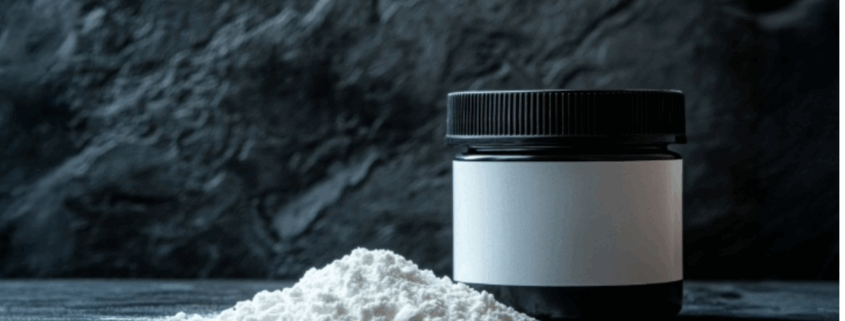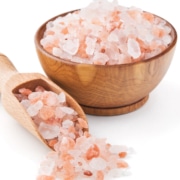Creatine 2.0
JED WIGHTMAN PERFORMANCE/SPORTS NUTRITIONIST ADVANTAGE FITNESS LTD
This article has been written for Canadian Physique Alliance July-September Edition
 A few years back I wrote an article on creatine and the many benefits, covering much of the application to athletes and every day individuals, young and old. Well today, as things have progressed, I have gathered much more information pertaining to creating benefits on cognition and impact on those of us who don’t get the best sleep or not much of it a lot of the time.
A few years back I wrote an article on creatine and the many benefits, covering much of the application to athletes and every day individuals, young and old. Well today, as things have progressed, I have gathered much more information pertaining to creating benefits on cognition and impact on those of us who don’t get the best sleep or not much of it a lot of the time.
Creatine, widely known for its use as a sports supplement, is typically associated with increased strength and muscle mass in athletes. However, recent years have witnessed growing interest in its cognitive benefits, especially among researchers investigating brain health, mental performance, and the body’s response to sleep deprivation. Emerging evidence suggests that creatine supplementation may improve several aspects of cognitive function, including memory, attention, and mental fatigue. Especially when the brain is under stress, such as during periods of sleep loss.
Creatine is synthesized from the amino acids arginine, glycine, and methionine, and it is also obtained through dietary sources such as red meat and fish. Approximately 95% of the body’s creatine is stored in muscle, with the remaining 5% found in the brain, liver, kidneys, and testes. In the body, creatine is converted into phosphocreatine, which serves as a quick energy reservoir for the rapid regeneration of adenosine triphosphate (ATP) the energy currency of cells. This system is essential for high-intensity, short-duration physical activity but also plays a crucial role in supporting high-energy demand in the brain. Surprisingly the brain, though only 2% of body mass, consumes about 20% of the body’s energy at rest. During periods of intense mental activity or stress, the demand increases significantly.
The creatine-phosphocreatine system in the brain helps maintain ATP levels during these times, supporting efficient neuronal function and neurotransmission. Recent animal and human studies have confirmed that creatine supplementation increases brain creatine levels, although not as dramatically as in muscles, so there’s a caveat here, amount, and timing. More on that later. Important takeaway is about boosting brain energy stores. By increasing creatine intake, creating enhances cognitive performance, particularly under conditions of metabolic stress or energy depletion.
So let’s talk about the benefits of creatine supplementation past the typical and familiar 3-5 g amount. Starting with the effects on working memory and intelligence tasks. Several studies have demonstrated that creatine supplementation enhances working memory and performance on intelligence-related tasks. In a notable 2003 study published in Proceedings of the Royal Society B, researchers found that six weeks of creatine supplementation (10 grams per day) significantly improved performance on tasks requiring working memory and abstract reasoning in young adult vegetarians. (Another very important position on why animal-based protein is so essential.)
The choice of vegetarians was strategic, as their baseline creatine levels tend to be almost nil, due to the absence of meat in their diet, making them more rapidly responsive to supplementation.
Next up, the reduction in mental fatigue. Creatine also appears to reduce mental fatigue, particularly during cognitively demanding tasks. In a double-blind, placebo-controlled study published in Psychopharmacology, subjects who took creatine reported feeling less fatigued and performed better on complex tasks requiring sustained mental effort. How about Support for mood and mental health? Well, there is growing evidence that creatine may positively affect mood and mental health. New research and studies suggest that creatine supplementation may have antidepressant effects, particularly when combined with standard treatments like selective serotonin reuptake inhibitors (SSRIs). This is likely linked to creatine’s role in brain bioenergetics and neurotransmitter synthesis. Yes, I covered this last time, but it is important to mention the improved performance enhancement in the elderly. Cognitive decline is a common concern with aging. Creatine supplementation has been shown to benefit older adults by improving memory, reaction time, and overall cognitive performance. A new study published in Neuropsychology found that older adults who supplemented with creatine performed significantly better on tasks involving spatial memory and recall than those given a placebo.
Creatine and sleep deprivation! Now this was very important for me to learn about it, as I have dealt with sleeping issues for many years. Creatine shows promise as a very effective neuroprotective agent. Sleep deprivation poses a significant challenge to brain function. Even partial sleep loss can impair attention, working memory, decision-making, and reaction time. In extreme cases, chronic sleep deprivation can lead to long-term cognitive deficits and increased risk of neurological diseases. Four or five years ago, I wrote an article all about sleep, benefits, and dangers of loss of sleep. Go back and read that, or if you’re somebody who suffers from poor sleep, if you’ve difficulty sleeping for whatever personal reasons then you know how important a good night’s sleep is. Because sleep deprivation stresses the brain’s energy systems, researchers have shown that creatine, by bolstering ATP availability, might buffer the brain against these deficits.
Cognitive protection during sleep loss is massively important. Research has shown that creatine supplementation may protect cognitive function during periods of sleep deprivation. In one study, participants who took creatine and then stayed awake for 24 to 36 hours showed better performance on tasks measuring vigilance, reaction time, and executive function compared to those who took a placebo. The amount of creatine was very important. It was upwards of 1 g per 10 kg of body weight. So for example, I’m about 220 pounds, 100 kg, that means 10 g is what my baseline would be to experience this response as detailed above. This suggests that creatine supplementation helps maintain brain energy levels during periods when normal restorative processes are disrupted, such as during sleep deprivation.
So let me tell you what, it sure works. For the first hour you feel a little more chipper, but after that first hour, it’s like you’re switched on, sharp as a razor and no need for caffeine. There’s also no crash and it lasts for the day. So I utilized this by getting out of bed after a night of restless or little sleep, 10 g in the morning upon getting out of bed. So, if you wake up from a bad sleep or get out of bed from not sleeping simply do the creatine protocol and see for yourself. I experienced improved mood and mental acumen, and no physical fatigue.
Sleep deprivation doesn’t only affect cognitive performance; it also has a significant impact on mood and fatigue levels. Studies suggest that creatine may help reduce subjective feelings of tiredness and negative mood associated with sleep loss. This had awesome practical applications in fields like shift work, military operations, and emergency medicine, where individuals must maintain alertness despite insufficient rest.
Fascinating isn’t it? Let’s discuss some of the mechanisms behind this action. Several mechanisms are believed to underlie creatine’s protective effect during sleep deprivation: ATP Preservation: By increasing the availability of phosphocreatine, creatine enhances the brain’s ability to regenerate ATP during periods of high energy demand. Neurotransmitter Regulation: Creatine may help maintain optimal levels of neurotransmitters like dopamine and serotonin, which play key roles in mood, attention, and alertness. Reduction of Oxidative Stress: Sleep deprivation increases oxidative stress in the brain. Creatine has been shown to possess antioxidant properties, potentially mitigating some of the oxidative damage. Improved Glucose Utilization: Sleep loss impairs glucose metabolism in the brain. Creatine may support energy metabolism independently of glucose, providing an alternative fuel source. Those of us working in a carb cycling program or a carnivore ketover ketogenic program. This becomes even more beneficial.
Creatine Dosage and Safety
So how much is right? Most studies showing cognitive benefits used dosages ranging from 5 + grams of creatine monohydrate per day. But increased in percentages and potency when amounts range from 10 to 15 +g a day, with diminished return at amounts higher than 20 g per day. Loading protocols of 20 grams/day for 5-7 days followed by a maintenance dose of 3-5 grams/day) are commonly used to saturate muscle stores more quickly. But you can experience the same benefit by taking a maintenance dose for upwards and over 20 days to saturate skeletal muscle. As I said earlier, it is about an amount, so for the individual, I recommend finding what works best for you starting at the typical 5 g and titrating accordingly. Also, if you’re eating a nutrition program high in animal proteins and a lot of good grass fed red meat, and wild sourced, cold water fish remember to account for the fact that you’re getting a a small dietary load already, about 4 to 600 mg for 7 ounces of beef or cold water fish.
I know some of you are out there thinking about safety, good, and I am pleased to say creatine monohydrate is the most studied and widely recommended form. It is generally considered safe, with few reported side effects in healthy individuals. But always consult with your healthcare practitioner before any supplementation. Then, enjoy the powerful benefits of this, in my opinion, not conditional, but essential nutrients. Thanks for reading. Catch you all next time!
ALWAYS FORWARD!









